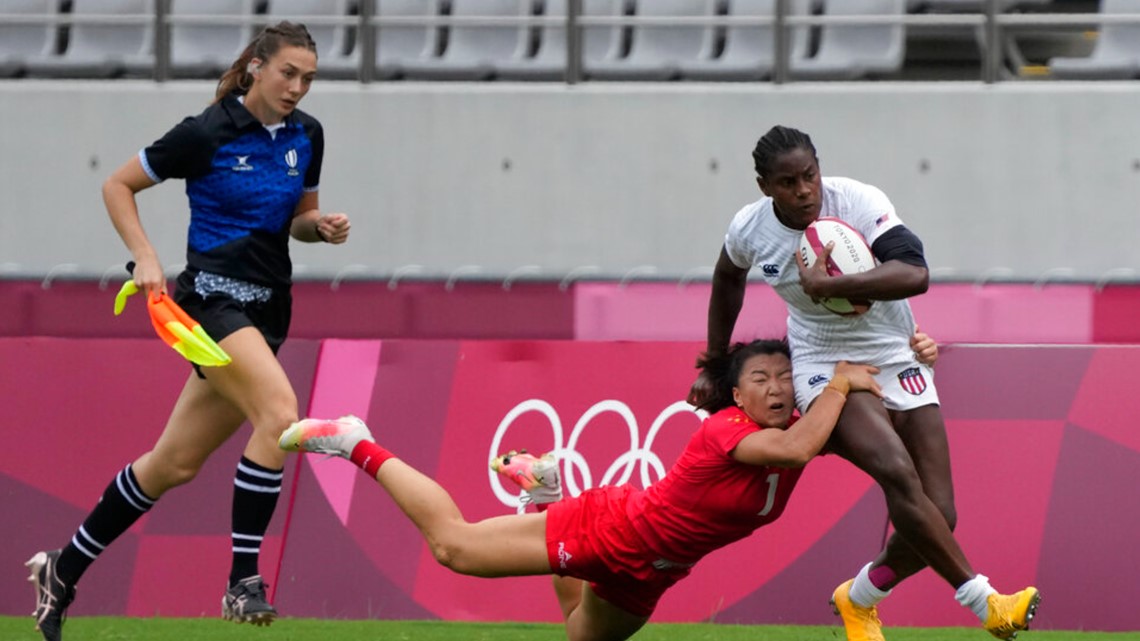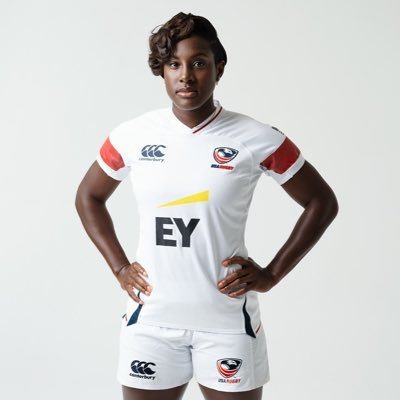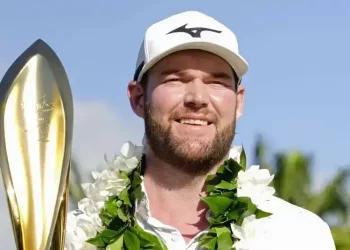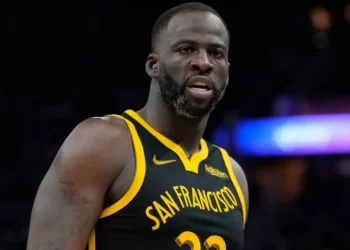By: Zachary Draves
27-year-old Naya Tapper’s remarkable journey to Tokyo as part of the USA Women’s Rugby team is a testament to grit, determination, and purpose.
After a career in Track and Field at West Mecklenburg High School in Charlotte, North Carolina, Naya took a chance on Rugby while at the University of North Carolina-Chapel Hill in 2012 and it has been on for her ever since.
While at UNC, she was majoring in exercise and sports science and minoring in Spanish and was working toward becoming a bilingual physical therapist when she decided to take on Rugby professionally.
(Courtesy: Women’s Rugby)
She made her rugby sevens debut at the 2016 São Paulo Women’s Sevens in Brazil in which Team USA finished 4th.
That same year she joined the team for the Women’s Super Series in Salt Lake City, Utah which resulted in the USA coming in 4th again.
A major blow for her came in the lead-up to the 2016 Olympics in Rio, which was the first time that Rugby became a sanctioned event for the first time since 1924.
Naya, a trained sprinter after years on the track, was told that she was being released from the team because according to a recent article in The Undefeated, even though she was quick, she didn’t have all the skills to become an effective Rugby player particularly when it came to catching the ball. https://theundefeated.com/features/the-olympics-will-introduce-the-world-to-rugby-star-naya-tapper
Nevertheless, she persisted and never gave up on her dream to compete on the ultimate world stage.
After a year-long stint at the National All-Star Competition, Naya returned to the Sevens Series scene at the start of the 2016-17 season where she came in 2nd during the tries and led the USA Women’s Sevens to a record 6th place finish.
Then after a stellar performance during the HSBC World Rugby Sevens Series, she was selected to the 2017 Women’s Rugby World Cup squad where she helped her teammates reach the Semi-Final.
She joined the 2017 Dubai Sevens Tournament where the USA Women’s Sevens won silver.
All this hard work culminated in Naya being one of the 12 selected to represent the USA at the Tokyo Olympics.

(Courtesy: The Undefeated)
Even though the team was eliminated from medal contention after falling 21-12 to Great Britain in the quarterfinal round, Naya got to fulfill a dream and she did so with not only athletic excellence but a strong social conscience to match.

(Courtesy: WCNC)
This past year’s racial reckoning after the murders of George Floyd, Breonna Taylor, Ahmaud Arbery, and other black lives compelled Naya to take action and to speak out on racial and social justice.
I had the honor to talk to Naya about it all. Her time in Tokyo, what it was like to compete under strict COVID restrictions, the humanization of athletes after Simone Biles spoke her truth, her commitment to social activism, and her plans for the future that includes the 2024 games in Paris.
What was it like competing in Tokyo even with all the restrictions that were put in place?
I wanna say that it was very welcoming. The people of Japan were very nice and caring. You can see the people around the city every time we drove around they would be clapping and cheering us on. So I felt very welcomed, loved, and appreciated. In terms of COVID, we had a lot of precautions to make sure that we were safe and I thought the process would be a little bit difficult and annoying but it was pretty feasible and we were able to move around comfortably without having to worry about being exposed to things that we didn’t want to be exposed to. So I felt very safe in the village. The village was beautiful and it was my first time going to the Olympics so it was a pretty exciting moment, overwhelming at times, long days. We were there only for a week and a half which I think is a lot different compared to previous Olympics where they get to stay a month and spend time there and do lots of different activities. So having it be a week and a half, it was really like we came here for business, and then we left. So we were able to enjoy ourselves for the first two days but then after that, it was back to focusing on training and focusing on the games and going out there and getting the results that we wanted.
What was it like getting on onto the field with this being your first Olympics?
It was a little nerve-wracking, not as bad because we didn’t have any fans in the stadium, so it was a lot easier to hear each other which was really nice and very positive. But you kind of lose that big excitement element with not having to have people cheer you on, especially family and friends right there in that area, but because of that it felt like another tournament, and once you’re done with the game you’re like “holy crap I just played in an Olympic tournament!” It was back and forth with nervousness, excitement, and kind of trying to realize it was the real thing.
Because of Zoom and other technology, do you check in with family and friends back home?
Yeah, whenever I did have time and when we didn’t have that much I was able to FaceTime my mother and some of my friends and my brothers and sisters and just kind of reconnect with the real world and have that support even though it was miles and miles away. So that was nice to have.
Certainly, you must have been aware of everything that was going obviously with Simone Biles and shedding light on mental health in sports. What did you make of all that?
I understand that you can’t really talk about somebody’s perspective unless you’re in their shoes. You don’t know what they’re going through and what they’re dealing with. You don’t really have a say on how they should respond in that sense. When I heard that I was like that’s great you’re doing whatever you need to do for yourself because at the end of the day once we do leave our careers, they say people don’t really care about you after that, so making sure you care about yourself throughout this whole process so that when you are done, mentally you are in a good place. I think that is super important and I’m sure that every athlete in the world, professional or not, can relate to what she was doing.
In the lead-up to the Olympics, I read the article that was on Slate.com that you had participated in with my good friend Dr. Amira Rose Davis and you talked about being outspoken on social justice issues and everything that has been going on this past year. How important is it for you as an athlete to use your platform in that way?
I think it is the freedom to speak about how you feel. We all have that right. I think awareness is a big thing. If people don’t talk about it, they can become very naive to the situation and to the state of our country. So being able to share how you feel about something and it is accepted in its most honest form, I think that it is very important to hear other people’s perspectives. So being able to have a voice to reach people all around the world and possibly change one person’s mind in a positive manner, I think that is very important.
Will we see you in 2024 in Paris and what else do you have going on?
That’s the goal right now. So we got three years so we got a head start on that. So that’s the plan right now just to relax, do a little thinking session for the next month, and then get back to training and get ready for the World Cup coming up, the Pan Ams, and then the Olympics again.


 NFL
NFL






